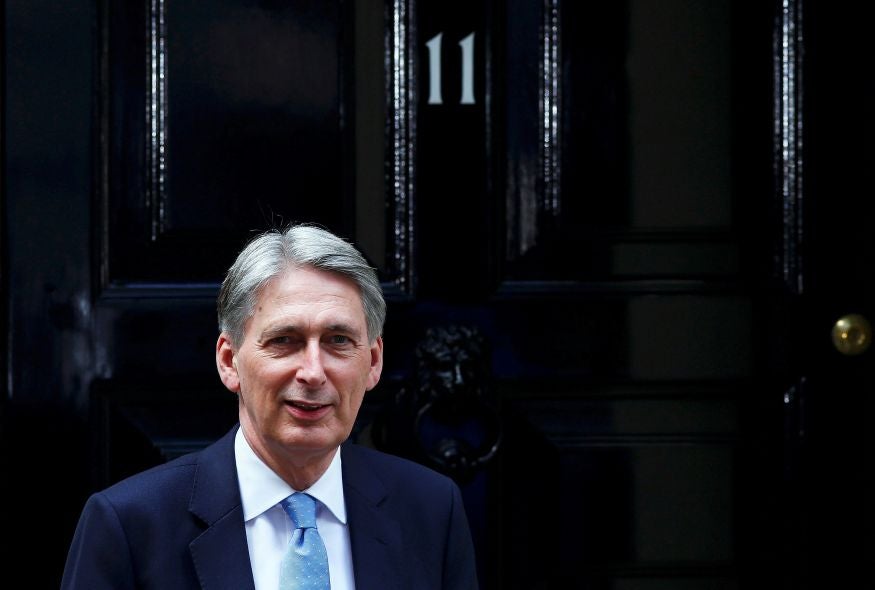The Tories have given up on austerity, but so has the rest of the world
Global fiscal policy is shifting. In the US it looks likely that the next administration will follow a more active policy, while the Italian Prime Minister has promised tax cuts in his budget next month


Governments around the world – including our own – are going to ease up on deficit-cutting and try and push some more demand into the world economy. How far that will go and which countries will push hardest is quite unclear, but there is a shift of mood taking place and the UK will be part of it. We will get the details of this shift on 23 November in the Chancellor’s Autumn Statement.
The background is that growth, at least in the developed world, has been disappointing. This year the US is likely to grow by around 1.5 per cent, about the same as the Eurozone, Japan by 0.5 per cent, and the UK perhaps by 1.7 per cent (the OECD has just increased its forecast for the UK to 1.8 per cent). The push to boost growth by monetary policy has pretty much stalled. Japan had a go yesterday and the European Central Bank may try again later in the autumn. The Bank of England may do something too. But in the US there is little faith that monetary policy can do more to help the economy grow and the Federal Reserve is clearly going to make further increases in rates – the issue there is about timing and scale rather than direction.
So the focus has switched to fiscal policy. It is a perfectly reasonable proposition that if interest rates are very low governments should borrow to fund infrastructural investment. The results have been disappointing in Japan, which has been doing this for two decades, but that arguably is more because the money has been wasted on projects driven by political expediency rather than economic viability. They built the bridges in constituencies where they needed the votes, rather than where bridges were actually needed. But that does not mean that other governments will also waste money too, though many people here feel HS2 has something of the Japanese disease about it. As a principle, the idea is fine.
In any case, the politics are shifting. In the US it looks likely that the next Administration, whoever leads it, will follow a more active fiscal policy. The Italian Prime Minister, Matteo Renzi, has promised tax cuts in his budget next month, despite Europe’s fiscal rules.
“Stressing austerity means destroying Europe,” he said yesterday at the Council on Foreign Relations in New York. “Which is the only country which receives an advantage from this strategy? The one which exports the most: Germany.”
Strong stuff. Expect a similar, though more cautiously-worded reaction here in November. The government is already cutting the deficit somewhat slowly than planned by George Osborne. We got new figures yesterday for August. In the five months of the financial year the deficit was down by 13 per cent on the same period last year, but it is supposed to be down 26 per cent for the year as a whole under the budget plan. The reason for the shortfall is partly that tax receipts over the past five months are a little weaker than projected, but more because spending has been running higher.
What happens in November? We’ll know much more then about the impact of Brexit. At the moment it seems to have had very little effect on demand and the forecasters that predicted catastrophe are looking pretty stupid. But the longer-term outlook is troubling and we should have more of a feeling for that in the Autumn Statement. We will undoubtedly slow down the pace of cutting the deficit; the question will be by how much.
Actually there is less of a case for fiscal easing in the UK than in most other countries, for two main reasons. We still have high budget deficit, 4.4 per cent of GDP; and we are at or close to full capacity. Llewellyn Consulting has just produced a rather clever matrix showing which countries could ease policy and which need to. Germany stands out as both having the capacity to ease and the need to do so. But it is not going to, or at least not much, because – well, the Germans believe in fiscal probity. The US by contrast has even less scope to ease than we do, for it too is close to capacity and also has a sizeable deficit. France and Italy are somewhere in between.
The big point here is that we are going to hear less of the need to cut budget deficits in the months ahead. Whether easing the squeeze will result in faster growth is far from clear. It hasn’t worked in Japan. But the mood has shifted and whatever we do will be part of that shift.
Join our commenting forum
Join thought-provoking conversations, follow other Independent readers and see their replies
Comments
Bookmark popover
Removed from bookmarks